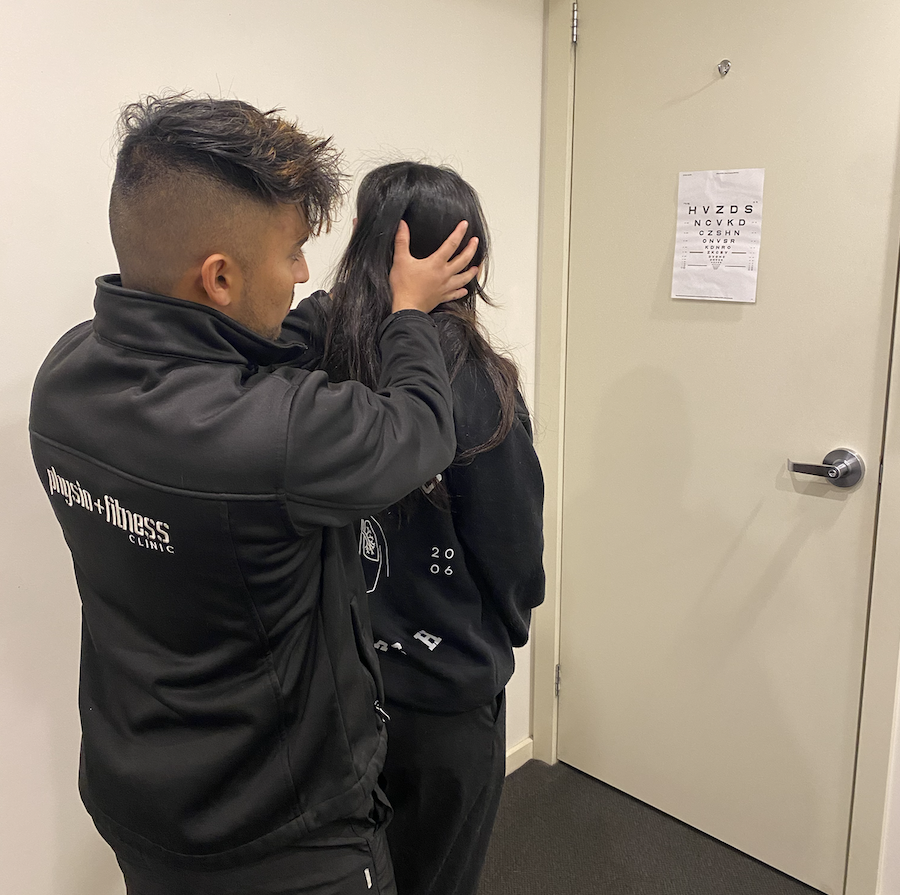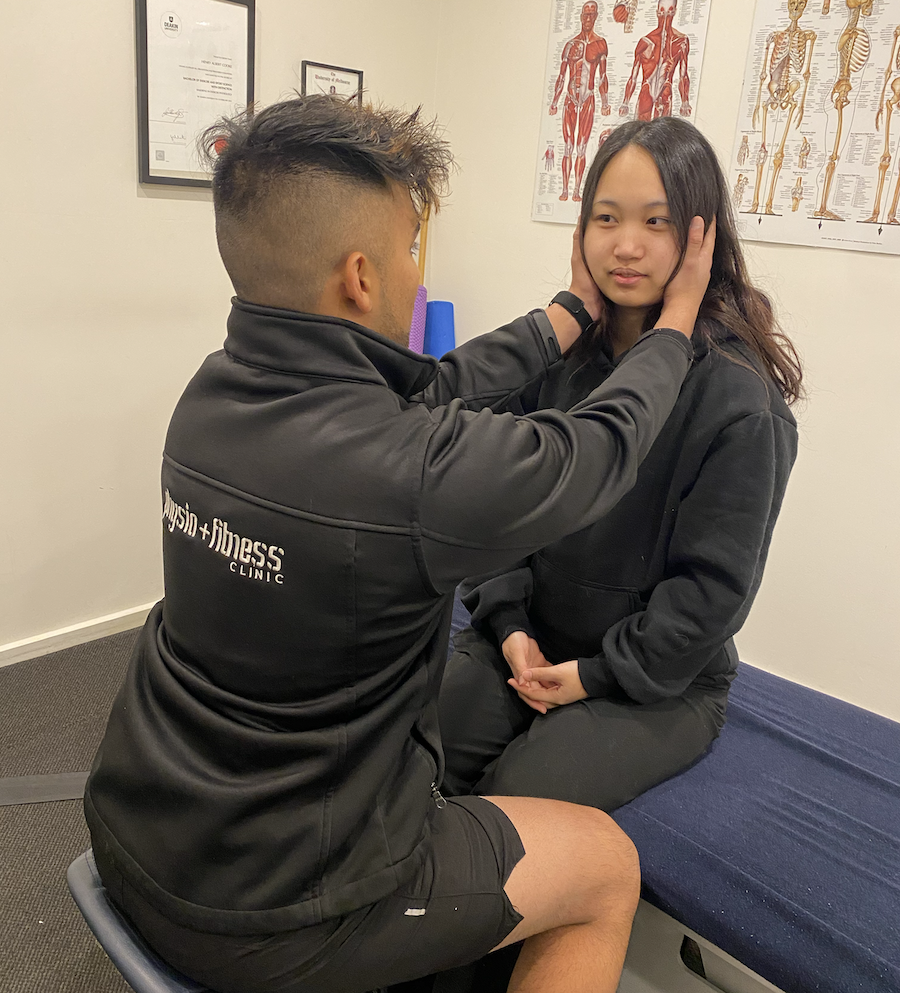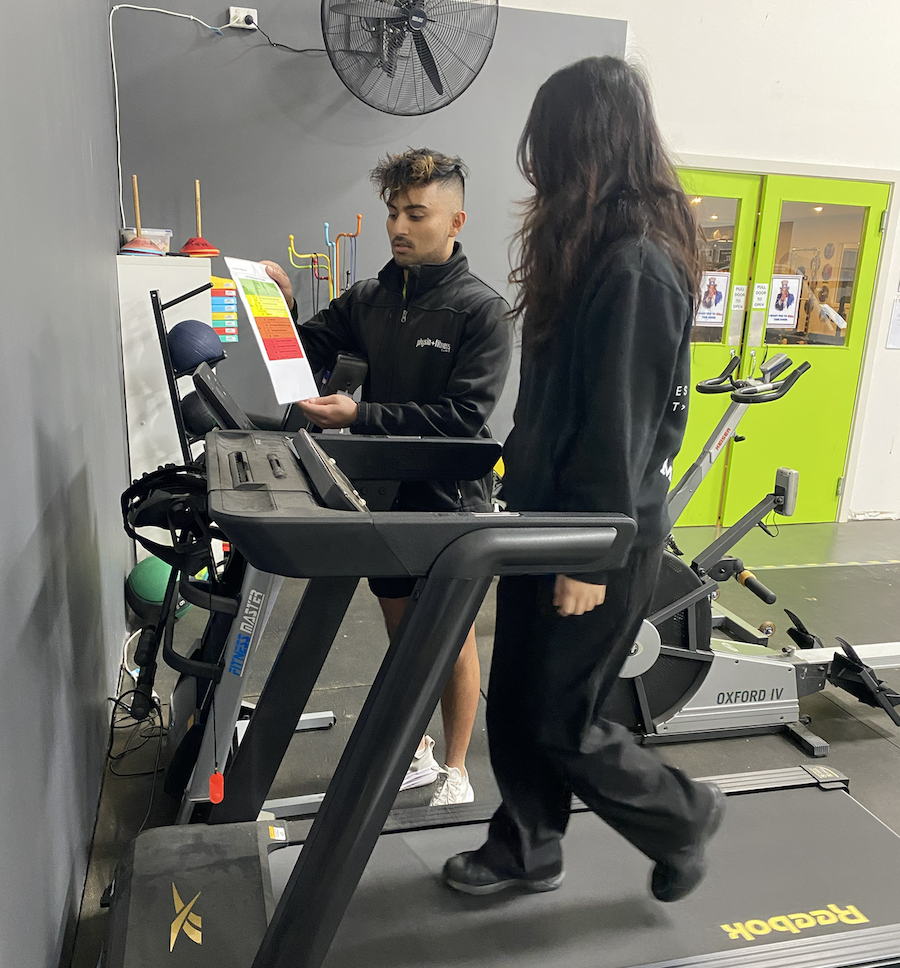Concussion + Vestibular Assessment & Rehabilitation
At Physio and Fitness Clinic, we offer a specialised Concussion and Vestibular service.
Our physiotherapist Henry is focused on helping you return to sport, work, or life commitments as soon as possible following a concussion or flare up of a vestibular based condition.
If you’re dealing with visual disturbances, dizziness, muscle tension, brain fog, or fatigue – Henry can help guide you through the recovery process.

Concussion + Vestibular Assessment and Rehabilitation
At Physio and Fitness Clinic, we offer a specialised Concussion and Vestibular service.
Our physiotherapist Henry is focused on helping you return to sport, work, or life commitments as soon as possible following a concussion or flare up of a vestibular based condition.
If you’re dealing with visual disturbances, dizziness, muscle tension, brain fog, or fatigue – Henry can help guide you through the recovery process.
What is concussion and why is it important to manage well?
- A concussion is defined as a mild injury to the brain, often caused from a force that forces the brain to move rapidly within the skull.
- A concussion can often result in temporary changes to how the brain senses, interprets and organises information – leading to your typical symptoms of headaches, dizziness, confusion, and nausea among others.
- Whilst 75% of adults often return to regular activities within 4 weeks after sustaining a concussion, up to 25% of them report what is termed “Persistent post-concussion Symptoms”. This number can be as high as 40% in children.
- Early assessment and treatment of concussion can help reduce the risk of someone developing Persistent post-concussion symptoms.

What is concussion and why is it important to manage well?
- A concussion is defined as a mild injury to the brain, often caused from a force that forces the brain to move rapidly within the skull
- A concussion can often result in temporary changes to how the brain senses, interprets and organises information – leading to your typical symptoms of headaches, dizziness, confusion, and nausea among others.
- Whilst 75% of adults often return to regular activities within 4 weeks after sustaining a concussion, up to 25% of them report what is termed “Persistent post-concussion Symptoms”. This number can be as high as 40% in children.
- Early assessment and treatment of concussion can help reduce the risk of someone developing Persistent post-concussion symptoms
What to expect when attending our specialist Concussion and Vestibular service:
Our physiotherapist Henry will first complete a thorough interview based assessment. Obtaining information on your symptoms, and how you sustained your concussion. What the regular demands of your life that you need to return to are, as well as provide you with education on management options.
You will then undergo a physical examination.
Where we will look at your:
1) Visual system
2) Vestibular system
3) Neck function
4) Nervous system
From this Henry will provide you with a detailed rehabilitation plan to target your symptoms and move towards your goals.
On a 2nd appointment we will look at completing a treadmill test, to help determine safe exercising capacity, as well as include higher level exercises.
Part of this service also involves a return to sport/play assessment if that aligns with your goals.

What to expect when attending our specialist Concussion and Vestibular service:
Our physiotherapist Henry will first complete a thorough interview based assessment. Obtaining information on your symptoms, and how you sustained your concussion. What the regular demands of your life that you need to return to are, as well as provide you with education on management options.
You will then undergo a physical examination.
Where we will look at your:
1) Visual system
2) Vestibular system
3) Neck function
4) Nervous system
From this Henry will provide you with a detailed rehabilitation plan to target your symptoms and move towards your goals.
On a 2nd appointment we will look at completing a treadmill test, to help determine safe exercising capacity, as well as include higher level exercises.
Part of this service also involves a return to sport/play assessment if that aligns with your goals.
CONCUSSION AND VESTIBULAR FAQs
Q. Will the assessment bring on my symptoms?
A. Whilst we will be careful not to aggravate your symptoms too much, it is necessary to assess your current capacity to its extent in order to complete a thorough assessment – during this testing, we would expect to slightly exacerbate your symptoms.
Q. Why am I doing cardio for my concussion rehab?
A. In many cases, individuals with a concussion will also have their nervous system affected – this can present itself with symptoms of: poor temperature regulation, mood swings, aches and pains, shaking/shivering, and blood pressure changes.
A progressive aerobic exercise plan can help manage these symptoms by improving blood flow to the brain and improving its function.
Research also suggests that early and individualised aerobic exercise may be effective at reducing the risk of persistent post-concussion symptoms, and early aerobic exercise is not detrimental to recovery.
Q. Will concussion symptoms last forever?
A. The majority of people will return to regular activities within 4 weeks. In some cases, individuals will have symptoms over a longer period of time; for these cases, it is important to include a multi-factorial approach involving: Physiotherapy, Psychology, Medical management and pacing and education.
Statistics of persistent post-concussion symptoms:
- 15 – 25% in adults
- 20 – 40 % in children
- 20% children with PPCS have symptoms for 6 months
Q. Is there a link with concussion and anxiety / mood?
A. Yes, particularly in cases where the nervous system is affected, patients may find themselves easily startled, irritable, feeling anxious without anxious thoughts, or feeling “on edge” for no reason.
Q. Why is the concussion session 2 hours?
A. Our appointments are set up in a way to thoroughly assess your concussion and provide you with an individualised recovery plan. During the session, our physiotherapist, Henry will complete a:
- Detailed interview / subjective assessment regarding your concussion
- Assessment of the Visual,Vestibular, Cervical and Nervous systems
- Treadmill test to determine safe exercise capacity
- Exercise prescription based on your testing outcomes
- Return to work/sport plan based on your personal goals
Due to the time requirement of these and the likelihood of your symptoms being aggravated by the testing, our assessment is split into 2 separate one-hour appointments. If you feel like you will be able to tolerate the 2 hours of testing however, then you can book both appointments on the same day.
